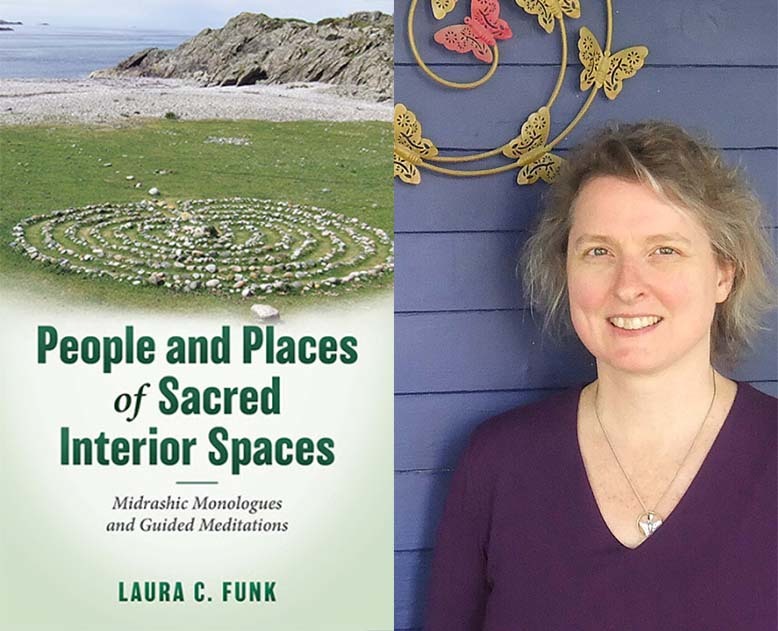October 6th, 2021Monologues from the margins and imaginative meditations: an interview with Laura Funk
MCM spiritual director talks about new book

In her new book, People and Places of Sacred Interior Spaces, spiritual director Laura Funk provides opportunities for imaginative walks of faith through guided meditations, and monologues inspired by the Jewish tradition of Midrash.
Funk is currently spiritual director in residence for Mennonite Church Manitoba and attends Hope Mennonite Church in Winnipeg. CommonWord will host an in-person and virtual book launch for People and Places on October 20 at 7 p.m. CDT, in Winnipeg.
To register for the launch, visit www.commonword.ca/go/2503.
Tell us about yourself.
I grew up in a small Mennonite Church in Winnipeg called Northdale Mennonite Fellowship. I studied at Canadian Mennonite Bible College, Anabaptist Mennonite Biblical Seminary and Canadian Mennonite University. I spent 17 years in an ecumenical congregation and now I am back in a Mennonite congregation. My private practice Butterfly Journeys is a ministry I started in 2012 out of a passion to accompany people on their spiritual journeys. I lead workshops, retreats and other events. I love making things of all kinds: woodwork, stained-glass, knitting. I love canoeing, hiking, being in nature and sitting by a fire with good friends.
What is your book about?
The book is in two parts: the first part is a collection of guided meditations and the second part is a collection of what I’ve called “midrashic monologues” – imaginative narratives in the voice of people mostly from the New Testament. Midrash comes from the Jewish tradition of enhancing and augmenting the text, helping the reader to make connections between the story and our own lives.
What specific experiences have you had that led you to write the book?
I went on a retreat in the fall of 2019. It was after a conference where I had led participants in a worship session and used a guided meditation I had written earlier in Iona, Scotland. I felt the Spirit nudging me to write more guided meditations. After a year I had a collection of over 30. I wrote the monologues over three decades for various occasions – retreats, gifts for friends and family and, most recently, to honour Dr. Mary Schertz, professor of New Testament at AMBS, for her retirement.
Who is the book intended for?
For people looking for fresh ways to encounter the people of the Bible, to engage with their faith. For people who want to take the Bible seriously as a guide to their own living faith. For people who want to encounter God’s love for them and for the world.
What do you hope they’ll take away from it?
The book is meant to be savoured – like good chocolate, not gobbled all at once. Each guided mediation has lots of ellipses – encouraging the reader to slow down and reflect on the prompts. My deepest hope is that it will help people experience more tangibly the breath-taking, life-giving, deep and abiding, unconditional love of God and find healing, hope, courage and whatever else they need to live more fully into the life for which they were created.
What is something significant from the book you’d like to highlight and why?
Many of the midrashic monologues are by women and people on the margins of the main story of the Bible. They had fuller lives than what was recorded, and I hope they open the reader’s eyes to consider their significant contribution in God’s story.
-30-
Media contact:
Arlyn Friesen Epp
afriesenepp@commonword.ca